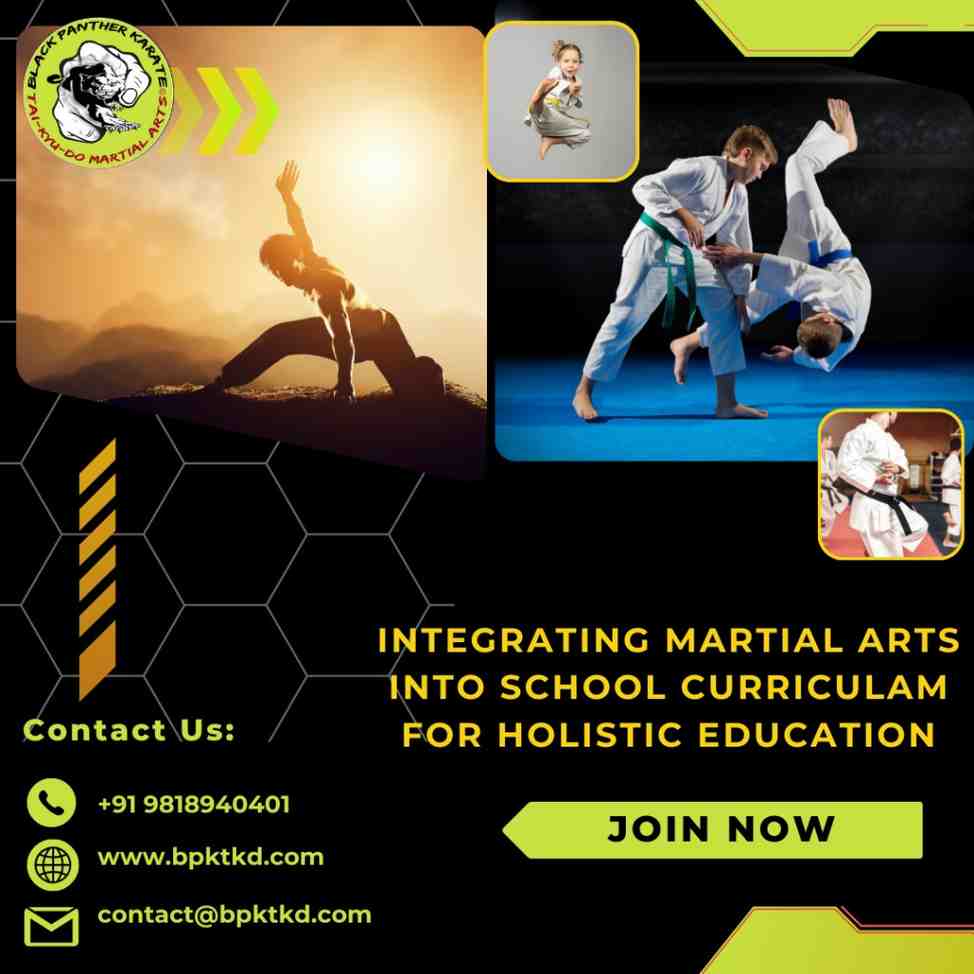
Incorporating martial arts for holistic education into curricula in schools}
Integrating Martial Arts into School Curricula for Holistic Education
Introduction:
In the pursuit of holistic education, schools are increasingly recognizing the value of incorporating activities that nurture not only academic knowledge but also physical fitness, mental resilience, and character development. One powerful avenue for achieving this comprehensive educational approach is the integration of martial arts into school curricula. In this blog post, we’ll explore the myriad benefits of introducing martial arts, with a particular focus on self-defense training, into schools for a well-rounded and holistic educational experience.
Physical Fitness and Well-being:
Integrating martial arts into school curricula provides students with a structured and engaging form of physical activity. Martial arts training incorporates a variety of movements, promoting flexibility, strength, and cardiovascular fitness. From warm-up exercises to dynamic drills, students participate in activities that contribute to their overall physical well-being. Keyword Insertion: The inclusion of self-defense training in martial arts enhances physical fitness, ensuring that students are equipped with practical skills for personal safety.
Character Development and Discipline:
Martial arts is not merely about physical techniques; it is a discipline that emphasizes character development. Students learn important values such as respect, humility, perseverance, and self-discipline. Through the repetition of techniques and adherence to dojo etiquette, martial arts instills a sense of responsibility and respect for oneself and others. Keyword Insertion: Self-defense training within martial arts serves as a platform for instilling discipline, empowering students with the skills and mindset needed to navigate challenging situations.
Building Confidence and Resilience:
Martial arts is a journey of self-discovery and personal growth. As students progress in their training, they overcome challenges, master new techniques, and build confidence in their abilities. This newfound self-assurance extends beyond the dojo, positively impacting various aspects of their lives. Additionally, the resilience developed through martial arts training equips students to bounce back from setbacks and face adversity with determination. Keyword Insertion: Self-defense training plays a crucial role in building confidence by providing students with practical skills that empower them to protect themselves if needed.
Cultivating Focus and Concentration:
The practice of martial arts demands a high level of focus and concentration. From memorizing forms to executing precise techniques, students enhance their cognitive skills through regular training. This heightened mental acuity carries over into the classroom, contributing to improved academic performance and attentiveness. Keyword Insertion: Self-defense training enhances mental focus, ensuring that students can react effectively and thoughtfully in self-defense situations.
Conflict Resolution and Emotional Intelligence:
Martial arts training emphasizes the importance of conflict resolution and emotional intelligence. Through controlled sparring, students learn to manage their emotions, communicate effectively, and resolve conflicts without resorting to aggression. These skills are valuable both within the school environment and in the broader context of students’ social interactions. Keyword Insertion: Self-defense training complements conflict resolution skills, providing students with a practical understanding of when and how to employ self-defense techniques responsibly.
Inclusivity and Team Building:
Martial arts promotes a sense of inclusivity and community. In a school setting, this inclusivity is crucial for fostering a positive and supportive learning environment. Students of varying abilities and backgrounds can participate in martial arts, creating a sense of camaraderie and teamwork. Inclusion in physical activities like self-defense training helps break down barriers and encourages a culture of mutual support. Keyword Insertion: Integrating self-defense training into martial arts ensures that all students, regardless of their physical abilities, can benefit from the inclusive and community-building aspects of the practice.
Practical Self-Defense Skills:
Beyond the physical and mental benefits, self-defense training within martial arts equips students with practical skills to protect themselves. In an era where personal safety is a concern, providing students with the knowledge of basic self-defense techniques instills a sense of empowerment. These skills contribute to a heightened awareness of personal safety, enabling students to navigate the world with greater confidence. Keyword Insertion: The practicality of self-defense training in martial arts extends beyond the dojo, offering students real-world skills that enhance their personal safety.
Long-term Healthy Lifestyle Habits:
The integration of martial arts into school curricula encourages the development of healthy lifestyle habits from a young age. By fostering a love for physical activity and mindfulness, students are more likely to carry these habits into adulthood. The holistic approach of martial arts contributes to long-term physical and mental well-being. Keyword Insertion: Self-defense training becomes part of a broader commitment to a healthy lifestyle, with students understanding the importance of both physical and mental wellness.
Parental Involvement and Support:
The inclusion of martial arts in school curricula often encourages parental involvement. Parents witness the positive impact of self-defense training on their children’s confidence, discipline, and overall well-being. This involvement creates a collaborative environment where parents and educators work together to support students’ holistic development. Keyword Insertion: Self-defense training becomes a focal point for parental engagement, as parents recognize its role in equipping their children with valuable life skills.
Affordability and Accessibility:
To ensure the inclusivity of martial arts education, schools can prioritize affordable self-defense training programs. By making these classes accessible to a broad range of students, schools promote equality and provide an opportunity for every student to benefit from the holistic advantages of martial arts. Keyword Insertion: Prioritizing affordable self-defense training within martial arts ensures that the benefits of this holistic education are accessible to all students, regardless of economic background.
Conclusion:
The integration of martial arts, with a specific emphasis on self-defense training, into school curricula offers a multifaceted approach to holistic education. Beyond the physical techniques, martial arts fosters character development, resilience, and a mindset of inclusivity. The practicality of self-defense skills complements the overall educational experience, equipping students with tools for personal safety and empowerment. By prioritizing affordability and accessibility, schools can ensure that the transformative benefits of martial arts are available to every student, contributing to a generation that is physically and mentally resilient, disciplined, and well-prepared for the challenges of life.
